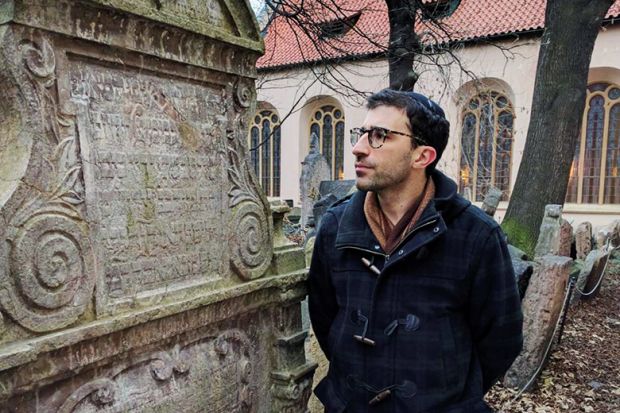In times of crisis, studying the past can provide consolation, insight and perhaps even guidance.
That is the view of Joshua Teplitsky, assistant professor of history at Stony Brook University in New York, whose detailed study of a plague that ravaged Prague in 1713 now has more obvious contemporary relevance.
Until recently, his work in progress, looking particularly at relations between the imperial authorities in Vienna and the local Jewish community, would have been seen as a topic of largely specialist and antiquarian interest. But now he has noticed “a thirst for making sense of [the current crisis] with a long historical perspective”.
Jewish organisations and magazines have already reached out to him to ask about precedents for maintaining religious rituals and ceremonies in earlier eras of what we now call “social distancing”.
More generally, “the best thing I can offer is comfort that there are precedents for what feels unprecedented”, said Dr Teplitsky. “Exploring the way that people in the past have made accommodations offers me – and I hope will offer others – a sense of comfort that what feels unprecedented has inspired creativity before and therefore may make us feel less alone in these very strange times.”
But if historians can provide a kind of comfort, can they also offer pointers as to what we should be doing now?
Although reluctant to give policy advice, Dr Teplitsky did feel able to “offer a challenge presented by material from the past”.
In 1713, he went on, “the capital in Vienna demands reports about the number of hospital beds, how much food would be required, the construction of new places to house the sick. It wants Prague [another key city in the Habsburg Empire] to relay information every day the post travels. It is so precise in its desire to collect data and information.” The authorities were also keen to hear the views of “sanitations commissions”, probably the closest equivalents of today’s public health experts.
During the current crisis, by contrast, Dr Teplitsky saw some governments as “far more interested in their ratings and in being heard rather than learning”. It would be far better if they could find ways to “take in information rather than grandstanding and to communicate in a way that instils public confidence without false security”.
Working on an earlier epidemic at a time of lockdown has also led Dr Teplitsky to notice aspects – and particularly emotional aspects – of the past he had missed before.
“Material jumped off the page I had not previously paid attention to,” he said. Prior to today’s pandemic, he “had not been particularly attuned to the issues of anticipation and dread” or “the frustration and fear of home enclosure”, although people naturally experienced such things in 18th-century Prague just as much as in 21st-century New York.
Another common emotional reaction to crises is turning to ugly forms of scapegoating.
In an earlier research project, Dr Teplitsky explored the myth that grew up after the Black Death in the 14th century, that Jews were relatively immune to the plague. Antisemites used this to argue that they were responsible for the plague; Jewish apologists responded by turning such allegedly higher levels of survival into a badge of honour due to factors such as piety or better hygiene.
Reflecting on this history, Dr Teplitsky has noticed clear echoes today: “A pastor in the US has publicly stated that God has smitten the Jews of the New York area first because of their rejection of Christ. An entirely distinct myth has circulated in some African American communities that people of colour are immune to corona and therefore can continue to live their lives as before.”
Even such seemingly “positive” stereotypes, in Dr Teplitsky’s view, needed to be challenged. Not only did this one fly in the face of evidence that the virus has in fact hit black Americans particularly hard, but it could “easily be turned in the opposite direction, tagging some sort of responsibility on to them or [encouraging arguments that] the state’s resources are better spent elsewhere,” he argued. “It can also lead communities to be less vigilant if they believe they don’t need to take precautions that others have to.”
More generally, Dr Teplitsky felt it important to “alert people to vigilance about scapegoating. This is referred to as a ‘China virus’.
“It can be all too easy to scapegoat people who appear to be members of a group we are being told by political leaders are responsible...The [lesson] I would take from the past is to be vigilant about social scapegoating, attributions of biological responsibility and cavalier uses of the word ‘just’, as in ‘This just affects the elderly or a certain population.’"





